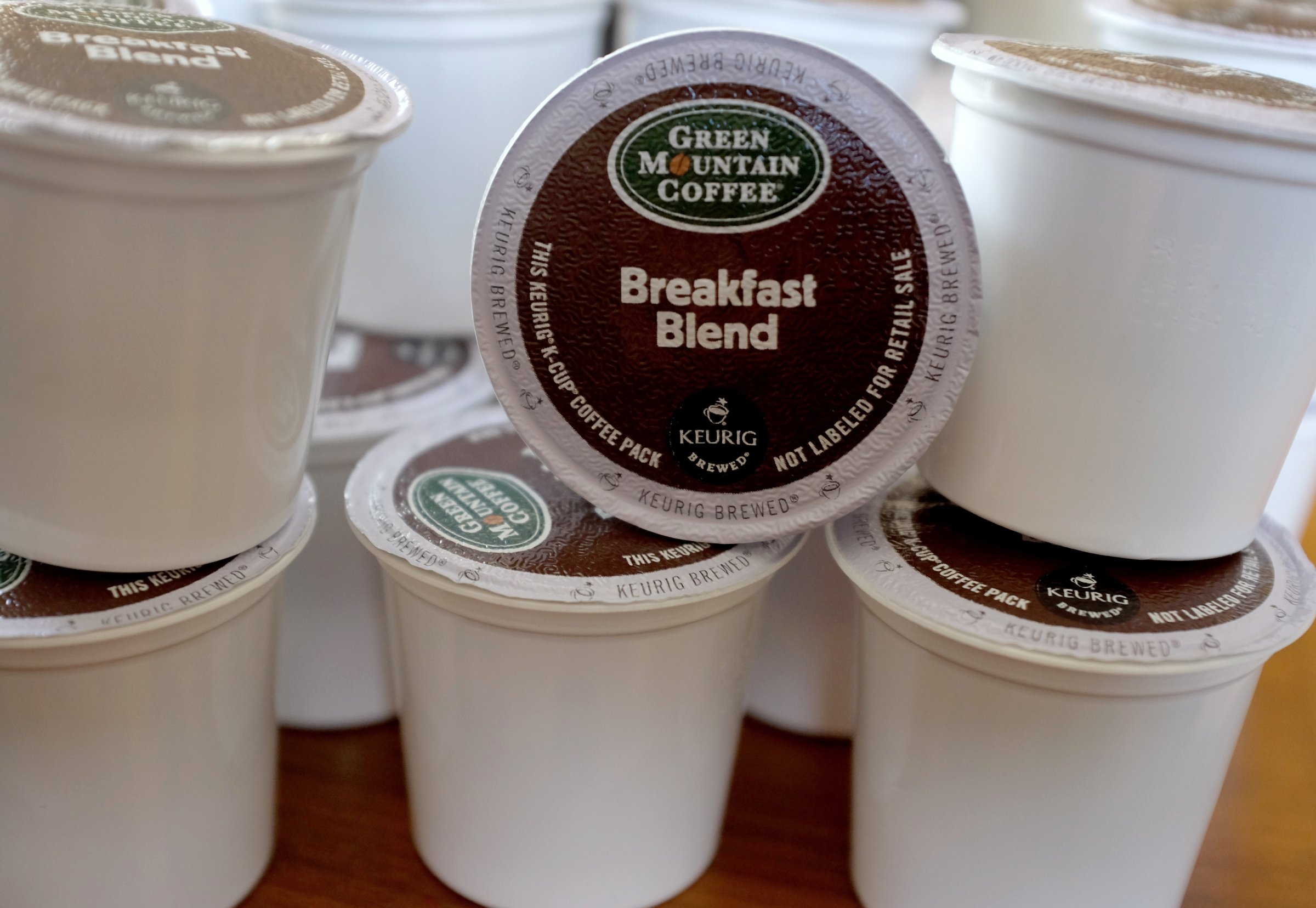
Monday kicked off with a big deal in the food and beverage sector: Keurig Green Mountain agreed to a $13.9 billion takeover by German conglomerate JAB Holding Company.
The deal is an all-cash offer of $92 per share, a massive 78% premium to Keurig’s trading price on Friday. It was unanimously approved by the board.
JAB is getting a bit of a fixer-upper with Keurig. The maker of coffee pods and brewers reported a 4% drop in revenue for fiscal 2015, with sales totaling $4.52 billion for that period as sales slipped for brewers and related accessories. The sector has seen more fragmentation as competitors released their own at-home, single-service coffee makers, and there were also questions about how big the market is for such machines. And analysts bristled at the price of a cold-beverage machine that Keurig debuted earlier this year.
What’s next for Keurig? Here are the five most important takeaways from the deal.
1) Coke is Backing the Buyout
Coca-Cola is Keurig’s largest shareholder—owning about 25.9 million shares after a few investment rounds it conducted in the first half of 2014. Under the terms of the deal, Coke is entitled to cash out nearly $2.4 billion.
“The Coca-Cola Company is fully supportive of this transaction,” said Muhtar Kent, Coke’s chairman and CEO in a prepared statement. Kent said the soda giant would continue to collaborate with JAB to capitalize on growth opportunities in the single-serve, pod-based segment of the cold beverage industry.
2) Coffee Consolidation Continues
The wave of consolidation across the coffee and tea industry rolls on, with the Keurig deal worth more than a blockbuster $11.4 billion acquisition of Tim Horton By Burger King Worldwide in 2014. Starbucks, meanwhile, paid $620 million for Teavana two years earlier. 2015 has seen a slew of deals, though often for smaller brands within the category.
3) JAB Likes to Buy Coffee Makers
Conglomerate JAB is adding Keurig to a growing portfolio of U.S. and international coffee brands, including Peet’s Coffee & Tea (bought for $974 million in 2012) and Caribou Coffee Company (acquired for $340 million, also in 2012). JAB also owns Espresso House, the largest branded coffee shop chain in Scandinavia, Baresso Coffee—the first and largest branded coffee shop chain in Denmark—and Netherlands-based Douwe Egberts.
The bigger bet on the category comes as its Peet’s brand has also been consolidating, buying Mighty Leaf Tea, Stumptown Coffee Roasters, and Intelligentsia. The plan is to continue to operate those smaller brands separately and independently—essentially signaling that consumers still value small brands.
4) Could SodaStream Be Next?
Shares of at-home soda maker SodaStream, the publicly traded company that is most similar to Keurig, jumped Monday on the news. Why? When a leading player in a challenged sector gets acquired, naturally investors hope that rival brands could also soon court interest in a deal. SodaStream’s shares have been pressured of late (they are down 53% over the past five years) as the company has warned it may have hit a ceiling in the U.S. market for selling soda-making devices to consumers.
5) Keurig Shares Sold Far Off Their Peak
For many investors, especially anyone who bought the stock long ago, the exit is a profitable one. But some shareholders likely hoped for more. As a reminder, if you bought Keurig shares at their peak in late 2014 when the stock was trading just a hair over $154, you’re looking at a 40% loss on your investment today.
This article originally appeared on Fortune.com.
More Must-Reads From TIME
- The 100 Most Influential People of 2024
- The Revolution of Yulia Navalnaya
- 6 Compliments That Land Every Time
- What's the Deal With the Bitcoin Halving?
- If You're Dating Right Now , You're Brave: Column
- The AI That Could Heal a Divided Internet
- Fallout Is a Brilliant Model for the Future of Video Game Adaptations
- Want Weekly Recs on What to Watch, Read, and More? Sign Up for Worth Your Time
Contact us at letters@time.com